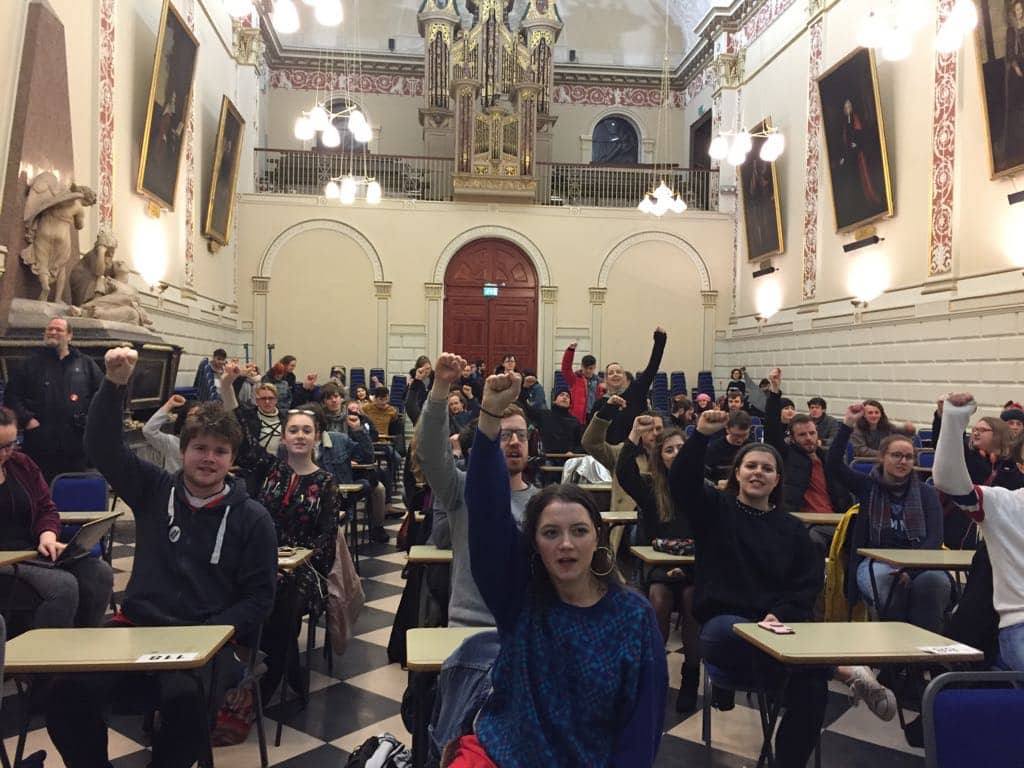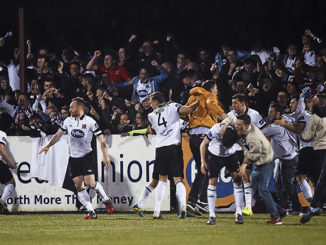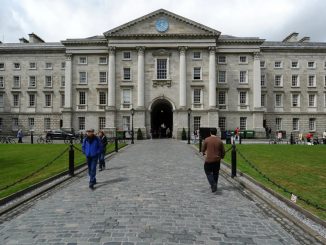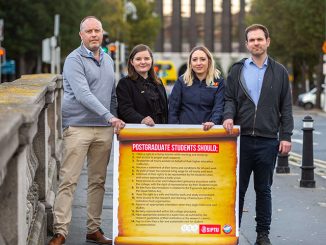
[dropcap]Sixty [/dropcap]Trinity students occupied the Dining Hall last Wednesday in an ongoing protest over supplemental fees of €450 being introduced for re-sit exams.
The movement calling itself ‘Take Back Trinity’ secured the building at 5pm on Wednesday, with access to water, food and toilets being cut off shortly after. Students were free to come and go as they pleased but were locked in later, with emergency alarms being activated.
This action comes after students blocked entry to the Book of Kells and Front Arch over the weekend and protests were held the previous Friday. A protest rally also occurred on Wednesday at around 1pm at the Front Square, where students gathered to fight these fees.
“Access to the bathrooms has been restored. What we hope to come of this is that the supplemental fees are removed – college promises to not increase postgraduate or international fees and the college promise to introduce affordable on-campus rent,” Sarah, who is campaigning with Take Back Trinity, told The College View in an email.
Students also held a concert and rally on Thursday at the Front Square to mark the end of the occupation of the Dining Hall which was attended by guest speakers, acts and the Student Union members, which lasted several hours.
Trinity College Dublin announced in January that a €450 fee for resit exams was to be introduced for all students, despite a referendum showing 82 per cent of students were against these fees being implemented. The poll represented 3,504 students attending Trinity.
They have also increased the costs of student accommodation. A press release from Take Back Trinity stated: “Trinity’s decision to introduce supplemental exam fees is evidence of their continuing disregard for students, their opinions, and their welfare”.
There has been no discussion of something like this being brought into DCU or any other colleges or ITs across the country.
“DCUSU would rally against an increase such as this that blatantly squeezes students of extra currency. Education and access are incredibly important, and as soon as it becomes more of a commodity it runs the risk of not being easily accessible by those from marginalised backgrounds”, DCUSU President Niall Behan said.
TCDSU President Kevin Keane was unavailable for comment.
Ellen Fitzpatrick



